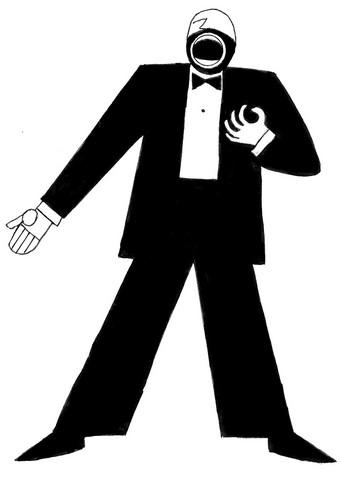Dylan and more
I found myself watching the Martin Scorcese documentary on Bob Dylan last night. I have to admit, I've never been a big Dylan fan. I can appreciate his unique place in the history of American popular music, but I still don't like him all that much. Still, there are a few things about the documentary that I found noteworthy:
The interviews with Dylan and some of his compatriots reveal a complex, intelligent individual who has spent the better part of forty years trying to remain as distant and enigmatic as possible. Dylan claims to have come to New York with no history or identity and to have written his lyrics with no idea of what they mean. This may be true, but I see someone with a very clear sense of himself who has manufactured each part of his artistic persona with great care. I think Dylan knows exactly what he is writing and how he will be perceived. He talks in contradictory phrases to blur his real feelings on things. It's all just part of his desire to keep the most important part of his art to himself. Am I saying Dylan is a con-artist? Sort of, but I think there is still an amount integrity (whatever that means) in his music.
The more interesting part of the documentary for me was all of the archival footage, both of Dylan and of his forebears and contemporaries. I was especially struck by the folk-blues singer Odetta with her raw intensity and John Jacob Niles who the Slate critic David Yaffe called "a silver-haired kook with an autoharp and a scary falsetto." I'd known about Niles for a while as the originator of "Black is the Color of My True Love's Hair," "I Wonder As I Wonder," and "Go Way From My Window" but did not know he was also a performer. I remember a coaching class a few years ago where we were debating whether Niles collected these tunes or composed them himself (they are always credited to "John Jacob Niles" and not "Traditional, arr. John Jacob Niles"). It seems that Niles did indeed compose the songs himself, albeit with a brilliant synthesis of his own writing and various folk sources. He shared with Dvorak and Chopin the ability to compose such authentic replicas of folk music that the music only sounds as if has been around forever. Apparantly Niles was quite an interesting figure balancing a career as an instrument builder, singer (both in his own folk performances and classically of all places at the Chicago Lyric), ethno-musicologist and composer. His voice is definitely a bit strange, and reminds me a bit of one my favorite singers Jeff Buckley, both in its intensity and its willingness to soar into countertenor territory. You can hear Niles at this site or at the Smithsonian Folkways site which also contains all kinds of rare audio treasures.

